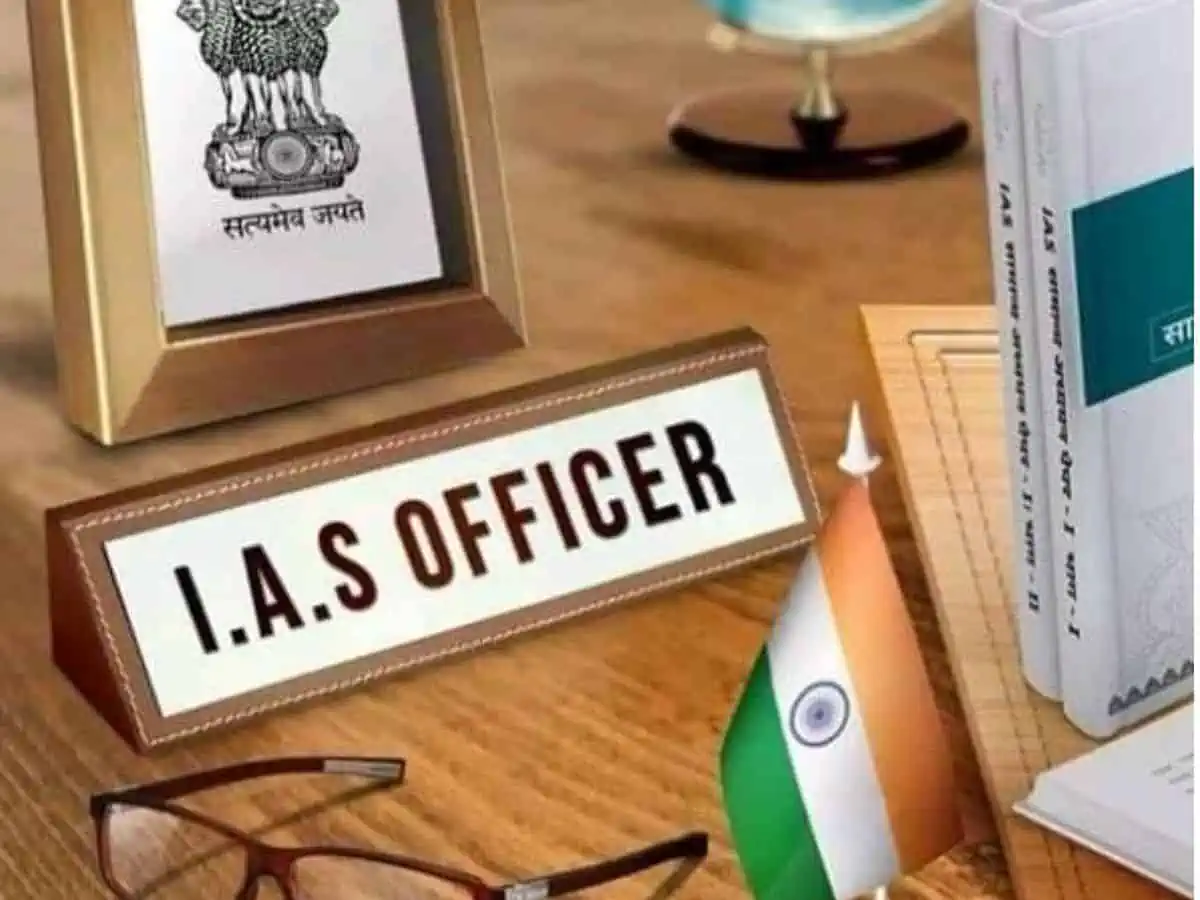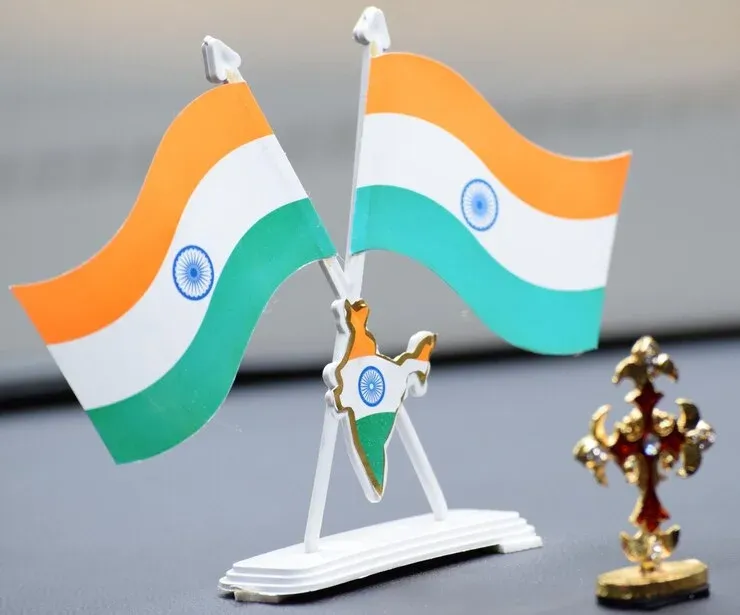How to Become an IAS Officer after 12th?
Updated: 5 February 2025, 12:04 pm IST
How to Become an IAS Officer after 12th? This is one question is on the mind of many students in India considering the diverse roles they perform such as the following:
- Collector
- Commissioner
- Head of public sector units
- Chief Secretary
- Cabinet Secretary
These professionals serve the governments – states, and center – and help to administer and implement policies that are formulated by their employers. They also provide the policymakers with valuable feedback that adds value to the decision making process. In this article, we will guide you – Indian students – on how you can pursue a career as an IAS (Indian Administrative Service) officer after finishing their Class 12 exams.
Start Your Learning Journey With Advice From Our Counselor
Understanding the Role of an IAS Officer

- Definition and scope of an IAS Officer: An IAS officer, as their name will imply, takes care of the administrative aspects of the governance of India.
- Duties and responsibilities in administration and governance: They have to perform a wide range of duties such as the following:
- Handling tasks that the government has allotted them such as framing, reviewing, and implementing policies
- Ensuring and supervising all the policies and their proper enforcement
- Surveying the areas in the jurisdiction and ones nearby the same to understand how rural people live and ensure that they live at least decently, if not comfortably
- Being responsible during times of emergencies and crises such as major accidents, riots, and natural disasters in their jurisdiction, and taking steps for quick relief
- Allocating and managing funds provided by the national government for various activities
If you want to know how to become IAS officer after your 12th, these are a few things that you must be aware of. So, as you can see for yourself from the information provided above these officers play an important role in the context of policy-making and the overall society in general.
Educational Qualifications and Eligibility Criteria
- Basic educational requirements after 12th for aspiring IAS Officers: You need to possess any of the following educational qualifications to become an IAS officer:
- An undergraduate (UG) degree from a recognized college or university in any stream or an equivalent degree
- Recognized technical and professional qualifications
- Awaiting results or appearing in the final exams of the UG level – in these cases you need to provide proof of having cleared graduation and send it with your application for the UPSC (Union Public Service Commission) Mains exams
- Medical students in the final year of their MBBS (Doctor of Medicine, Doctor of Surgery), BAMS (Bachelor of Ayurvedic Medicine and Surgery), BHMS (Bachelor of Homoeopathic Medicine and Surgery), and BDS (Bachelor of Dental Surgery)
Along with these, you must also fulfill the following criteria to be considered eligible for the UPSC exam:
- An Indian citizen or Indian origin subject of Nepal, Tibet, or Bhutan who settled in India before 1st January 1962
- Between 21 and 32 years of age for general candidates – the maximum age limit for OBC (Other Backward Castes) candidates is 35, the maximum age limit for SC (Scheduled Caste) and ST (Scheduled Tribe) candidates is 37 years, and the maximum age limit for PWD (Person with Disability) candidates is 42 years.
- Completed Class 12 from a recognized board with at least 50% marks
- Students who are appearing in the final examination of their respective graduation programs
- Graduates from a recognized college or university
- Importance of choosing the right subjects in 12th standard (Arts, Commerce, and Science): Science and Commerce are indeed beneficial for Class 12 students aspiring to be IAS Officers but in most cases students with Arts background have an advantage as their curriculum covers most subjects that become in UPSC preparation. Alongside, you must also emphasize developing critical thinking, analytical, and writing skills.
- Number of attempts: General or Unreserved students can attempt the exam six times while OBC candidates can make nine attempts. SC, ST, and PWD candidates are allowed as many attempts as they want till they reach the maximum age limit earmarked for them in the examination.
Steps To Become an IAS Officer

- Overview of the pathway to becoming an IAS officer after 12th: Do you want to know how to become an IAS officer after 12th? In that case, following are the steps that you need to follow:
- Enroll yourself for graduation at any stream in a recognized college or university and complete the program.
- You must score at least 50% in the course to be considered eligible for the exam.
- Enroll in a coaching center to get proper direction on the exam, its pattern, and how to prepare the best for the exam.
- Stay updated on current affairs with newspapers, magazines, and all other viable sources.
- Fill up the UPSC CSE (Civil Services Examination) form to take the exam
- Read textbooks published by the NCERT (National Council of Educational Research and Training), start preparing for the examination, and choose the right optional subject
- Importance of higher education – choosing the right degree courses: You must choose the right courses to become an IAS officer. While any bachelor’s degree can make you eligible it is always better to go with courses that are in alignment with the UPSC syllabus. The most beneficial subjects in this case are:
- History
- Public Administration
- Economics
- Sociology
- Political Science
- Law
Key Stages of the Civil Services Examination (CSE)
- Detailed explanation of the Civil Services Examination (CSE): The CSE is an India-wide exam conducted by the UPSC to recruit candidates for different All India Civil Services and Central Civil Services posts in the likes of the Indian Administrative Service (IAS), Indian Police Service (IPS), Indian Foreign Service (IFS), and Indian Revenue Service (IRS).
- Preliminary Examination (UPSC Prelims) – syllabus, pattern, and preparation tips: UPSC Prelims have two rounds – CSAT (Civil Service Aptitude Test) and General Studies (GS) and both of them carry 200 marks each. Both are two-hour exams with 80 questions in the CSAT exam and 100 in the GS exam. You need to score at least 33% in CSAT and the cut-off necessary in case of the GS exam to be eligible for the UPSC Mains examination. Following is the syllabus of the exam (GS followed by CSAT):
GS
- nationally and internationally important current events
- history of India including the Indian National Movement
- world and Indian geography
- Indian governance and polity
- social and economic development
- general issues such as environmental ecology, climate change, and biodiversity
- general science
CSAT
- comprehension
- interpersonal skills such as communication skills
- analytical ability and logical reasoning
- problem-solving and decision-making
- general mental ability
- basic numeracy
- data interpretation
- Main Examination (UPSC Mains) – structure, optional subject choices, and essay writing: Following are some tips that can help you prepare better for this stage of the UPSC CSE:
- making a timetable
- knowing the UPSC syllabus
- staying updated on current affairs
- choosing the right optional subject
- reading NCERTs
- making notes
- practicing writing answers
- solving question papers from previous years
- attempting mock tests
In the UPSC Mains, you have nine descriptive papers that include four general studies papers, two language papers (one optional language and one English), and two optional papers. The language papers are worth 300 marks each and the other papers in the set are worth 250 each. The language papers are just used for qualification purposes – they are not used for merit ranking. There are 48 optional subjects at this stage including the following:
- Agriculture
- Botany
- Chemistry
- Economics
- Geography
- History
- Law
- Management
- Philosophy
- Sociology
When you write essays in the UPSC Mains exam you have to make them well organized and structured. Remember that the purpose of this paper is not to judge only your creative writing skills but also to evaluate how critically you can think, how clearly you can express your ideas, and how balanced a perspective you have on different issues. So, if you are serious about this – after 12 how to become IAS – these are crucial facts for you to know.
Personality Test (Interview)

- Importance of the UPSC Personality Test (Interview): This is a critical part of becoming an IAS officer after 12th and, as such, its importance cannot be overstated. These personality assessments let the Interview Board of the UPSC get deeper insights into how you are as an individual. More specifically, it helps them understand how well you will be at handling diverse responsibilities and situations.
- Preparation tips: Following are certain tips that can help you prepare the best for this particular stage of the UPSC Interview:
- taking part in mock interviews
- having full knowledge of current affairs
- brushing up on your communication skills
- understanding the components of your DAF (Detailed Application Form)
- wearing clean, comfortable, and appropriate clothing to the interview
- checking your documents
- getting enough rest before the interview
Optional Subjects for UPSC Mains Examination
- Overview of optional subjects available for UPSC Mains: Apart from the ones we have mentioned already, you can also choose any one of the following as an optional subject for your UPSC Mains exam:
- Veterinary Science and Animal Husbandry
- Civil Engineering
- Electrical Engineering
- Geology
- Mathematics
- Physics
- Statistics
- Zoology
- Linguistic Literature such as English and Hindi
So, as you can see for yourself, this particular list includes subjects from all streams.
- Criteria for choosing optional subjects: While choosing these subjects you must keep a few things in mind. Always remember your educational background. If you have studied Arts in 10+2 you should ideally not attempt to choose a Scientific or Commerce-related discipline. In case you are interested in animal welfare you can go for Veterinary Science and Animal Husbandry. You should also have a clear idea of your scoring potential in the subjects that you choose in this regard.
- Popular optional subjects and their relevance in IAS preparation: The top 10 optional subjects of the UPSC may be mentioned as below:
- History
- Economics
- Public Administration
- Anthropology
- Geography
- Psychology
- Political Science and International Relations (PSIR)
- Philosophy
- Sociology
- Literature subjects
- These are regarded as the top 10 in this regard because they have consistently yielded the highest marks in the history of the exam and this is also a reason behind the immense popularity they enjoy among IAS aspirants.
Call Us For Any Query:- 1800 102 3434
Tips for Effective Preparation

- Time management strategies for UPSC preparation alongside graduation: If you want to get ready for the UPSC CSE while you are graduating you can try out these strategies for the most effective time management:
- avoiding college gossip
- creating a study schedule
- setting realistic goals
- prioritizing subjects
- utilizing breaks wisely
- combining learning
- Importance of consistent study routine and revision schedules: You must be consistent in following the study routine that you have established in this particular context. The criticality of revisions in this particular context cannot be overlooked either. Both these factors help you stay on course for this ambitious goal that requires a lot more hard work than several others of their ilk.
- Role of self-study, and online resources in UPSC preparation: You can enroll at the most successful coaching centers to crack the exam but it is also important that you hold up your end of the bargain properly as well. You have to study – long and hard – to make sure you can keep up with what is being taught in those classes. Online resources also play a major role in getting you ready properly for the exam by offering you benefits such as mentorship and peer support.
Career Progression and Job Opportunities
- Career growth trajectory of an IAS officer in the Indian Administrative Service: In the IAS domain, the career of an Officer progresses typically following a definite hierarchical structure. You enter in beginner-level roles such as Sub-Divisional Magistrate (SDM) and go on to senior positions such as Secretary and District Collector. The final stage of the pyramid comprises the top positions such as Cabinet Secretary and Chief Secretary.
- Opportunities for postings and responsibilities at different stages: At the initial stages of their careers, IAS Officers have to work on field assignments which are the most challenging of the lot. There are two levels to this – sub-divisional functions headed by district-level functions. After this, when they get promoted to the State Secretariat they do not have to take part in field assignments anymore. Here, they can work in State Secretariat Assignments, Central Secretariat Assignments, or Public Sector Undertakings.
- Impact of an IAS career on personal and professional life: If you are a driven individual you can be sure you would have a life that is satisfying and challenging in equal parts. These careers represent the perfect opportunity for youngsters to take part in running the development and administration of the country while sacrificing their personal lives to a certain extent.

Salary and Perks of an IAS Officer
- Overview of salary structure and allowances for IAS officers: The salary of an IAS Officer depends on the latest decree of the Pay Commission. Right now, they start at Rs 56,000 but this does not include the benefits and perks that they are entitled to. This amount can go up to Rs 350,000 depending on their position. Apart from this, they get the likes of DA (Dearness Allowance), HRA (Housing Rent Allowance), and travel allowance. They also get a monthly pension along with other financial benefits such as gratuity and provident fund upon retirement.
- Additional perks: Following are the extra perks that they get:
- subsidized government accommodation
- medical expenses reimbursement
- zero toll tax while riding government vehicles
- staying at government hotels for free while on duty
- zero transport costs while on duty
- government cars with drivers
- Comparison with other government and private sector jobs in terms of remuneration: The salaries of IAS Officers are comparable to other professionals employed by the government such as IRS and IPS officers. They also earn quite a lot more than most private sector jobs in India.
Challenges and Rewards of Being an IAS Officer
- Challenges faced by IAS officers in administrative roles: Following are the biggest challenges that civil servants such as IAS Officers face in India:
- political interference
- work-life balance
- lack of resources and infrastructure
- public expectations and pressure
- corruption
- bureaucracy and red tape
- threats to personal security
- limited autonomy
- transparency and accountability
- Rewards of public service and contributing to nation-building: IAS Officers are in charge of entire departments, ministries, districts, and states. People are dependent on them for efficient and effective functioning. They are also in a position to make positive changes to people’s lives. They also get to affect policies on social programs, health, education, and the economy.
- Inspiration real-life success stories of serving IAS officers: Kanishak Kataria, an IIT (Indian Institute of Technology) alumnus, achieved the first rank with his first try at the UPSC CSE Exam in 2018. Saumya Sharma achieved the ninth rank in the exam despite a preparation time of just four months and a hearing impairment in 2017. In 2006, Govind Jaiswal, the son of a rickshaw puller got the 48th rank in the exam.
Take The Next Step In Your Career ?
Wrapping Up
Thus, working in civil services can help you pursue your dream of serving your country in perhaps the best possible way. This is especially important in a country like India where more work needs to be done in various developmental aspects than so many other countries of the world. So, if you wish to serve your country as well this is one path that you can always seek. Along with all the information we have provided over here you can also look up the internet to get more information on how to become an IAS officer after 12th.
Check Out Our Top Online Degree Programs
Tags : Latest
Explore similar programmes
frequently asked questions
What is an IAS Officer?
+An IAS Officer is a civil servant employed by the Government of India to lead and take care of its various administrative tasks such as departments, ministries, districts, and states.
Can I become an IAS officer immediately after completing 12th grade?
+No, you cannot become an IAS Officer immediately after finishing your 10+2. You need to finish your graduation first from a recognized college or university with at least 50% marks.
What educational qualifications are required to appear for the IAS exam?
+You must have finished your graduation with 50%, or at least be in the final year of the same, from a recognized university or college to be considered educationally eligible for taking the UPSC CSE Exam.
What should I study after 12th to become an IAS officer?
+You can study in any stream you want after Class 12 to become an IAS but certain subjects like History and Political Science are better options because their syllabi are more aligned with that of the UPSC CSE Exam.
Which undergraduate courses are most beneficial for IAS preparation?
+The most beneficial subjects to study or specialize in your graduation to become an IAS Officer later on in life may be enumerated as below: History Public Administration Economics Sociology Political Science Law
How many attempts are allowed for the IAS exam?
+This depends on the category that you belong to as an individual. SC, ST, and PWD candidates can attempt the exam as many times as they want before the maximum age limit. General or unreserved candidates are permitted six attempts each and OBC candidates are allowed nine attempts each at the exam.
What skills are essential for becoming an IAS officer?
+Following are the most important skills needed to be an IAS Officer: patriotism rationality and legal knowledge liability and responsibility commitment and hard work unconventional thinking to achieve excellence resilience and decisiveness belief in utilitarianism compassionate sense of justice integrity and transparency



















